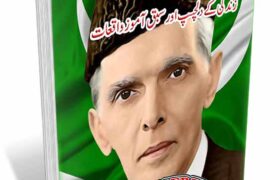
The ASI was saved by the Railway Police from being lynched by the public but in the process he blurted out his identity.

An ASI of FSF in plain clothes was caught red-handed by passengers at the Lahore railway station while planting a bomb in the bathroom of the compartment in which Air Marshal Asghar Khan was traveling so that a case could be made against him and his party. In the Punjab, there were frequent bomb blasts, for which the government blamed the National Awami Party and its leader, Wali Khan, but the people pointed their fingers towards Bhutto and his Federal Security Force. Jama’at-i-Islami, Tehrik-i-Istiqlal and Pakistan Democratic Party, under their respective leaders, Mian Tufail Muhammad, Asghar Khan and Nawabzada Nasrulla, were very active in mobilizing the public opinion against the oppressive government. Nawab Sadiq Husain Qureshi, considered to be only a stooge of Bhutto and without any following of his own, had become the Chief Minister. Raja Munawwar and many of Ramay’s other friends had joined the Muslim League. More about it in the next chapter.) Hanif Ramay had been dismissed and sent from the Chief Minister House to the infamous interrogation center in the Lahore Fort for pleading in his book, “The Case of the Punjab,” a fair deal for the largest province. (He was later tried on this charge and was ultimately hanged. In public perception, Bhutto was responsible for the murder of Nawab Muhammad Ahmad Khan. Writ petitions were filed in the Lahore High Court for their release but Azad Kashmir, where the camp was located, was out of its jurisdiction. Some friends of Mustafa Khar had been taken to Dulai Camp in Azad Kashmir and were being tortured there without even admitting that they were in custody.

The people were losing faith in the due process of law. Punjab was seething with resentment and despondency under the oppression of a ruthless administration. In those days, I was not in the mainstream of the general administration but did hear about many misdeeds of the Bhutto government. Sahibzada thought that Bhutto was quite shrewd and would like to get a fresh mandate before he dealt with the new American administration. delegate had told Sahibzada Sahib that President-elect Jimmy Carter had decided that American aid in future would be given only to the genuinely elected governments in the Third World because backing the dictators there had made America unpopular among their people.

Why should Bhutto Sahib bring it forward?”ĭuring at a meeting on narcotics, a senior U.S. “There are still about two years to go before elections will be due. Sahibzada Raoof Ali, while talking to me one evening in late 1976, predicted that new elections would be held shortly.


 0 kommentar(er)
0 kommentar(er)
